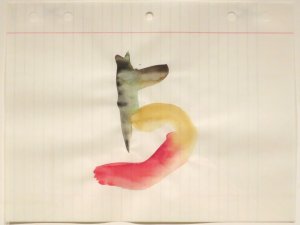A Quote by Noam Chomsky
I don't think there is any scientific evidence about the question of whether we think only in language or not. But introspection indicates pretty clearly that we don't think in language necessarily. We also think in visual images, we think in terms of situations and events, and so on, and many times we can't even express in words what the content of our thinking is. And even if we are able to express it in words, it is a common experience to say something and then to recognize that it is not what we meant, that it is something else.
Quote Topics
Able
About
Also
Any
Clearly
Common
Common Experience
Content
Else
Even
Events
Evidence
Experience
Express
Images
Introspection
Language
Many
Meant
Necessarily
Only
Our
Pretty
Question
Recognize
Say
Scientific
Scientific Evidence
Situations
Something
Something Else
Terms
Then
Think
Thinking
Times
Visual
Visual Image
Visual Images
Whether
Words
Related Quotes
I'm very concerned with questions of language. This is what I think of when I think of myself as a writer: I'm someone who writes sentences and paragraphs. I think of the sentence - not only what it shares but, in a sense, what it looks like. I like to match words not only in a way that convey a meaning, possibly an indirect meaning, but even at times words that have a kind of visual correspondence.
In your relationship with God there are also times when you want to say things and you're trying to find the words to express them. In a human relationship sometimes you struggle for words and you've got to do it, but in a relationship with God he can actually give you a language which enables you to communicate. In a relationship with God you feel things and you want to express them and you're not limited by human language. You can express what you really feel in your heart, through a language that he gives you, and that helps you to communicate with God.
I don't think that writers or painters or filmmakers function because they have something they particularly want to say. They have something that they feel. And they like the art form; they like words, or the smell of paint, or celluloid and photographic images and working with actors. I don't think that any genuine artist has ever been oriented by some didactic point of view, even if he thought he was.
When people talk to me about the digital divide, I think of it not so much about who has access to what technology as about who knows how to create and express themselves in the new language of the screen. If students aren't taught the language of sound and images, shouldn't they be considered as illiterate as if they left college without being able to read and write?
There is something false in this search for a purely feminine writing style. Language, such as it is, is inherited from a masculine society, and it contains many male prejudices. We must rid language of all that. Still, a language is not something created artificially; the proletariat can't use a different language from the bourgeoisie, even if they use it differently, even if from time to time they invent something, technical words or even a kind of worker's slang, which can be very beautiful and very rich. Women can do that as well, enrich their language, clean it up.
The God of the Hebrews is a God that human language, we're not even supposed to speak the holy name. We were told in the Second Commandment we could make no images of this God, and I don't think that means just building idols, I think that means also trying to believe you've captured God in your words, in the Creeds, in the Scriptures.
If you're going to be a visual artist, then there has to be something in the work that accounts for the possibility of the invisible, the opposite of the visual experience. That's why it's not like a table or a car or something. I think that that might even be hard for people because most of our visual experiences are of tables. It has no business being anything else but a table. But a painting or a sculpture really exists somewhere between itself, what it is, and what it is not-you know, the very thing. And how the artist engineers or manages that is the question.
Sound words can't be understood through formal study of the language alone. They're felt when you immerse yourself in the culture or lifestyle that becomes a part of you. The Japanese language is abundant with onomatopoeia. Even though I've lived in Japan a long time, sound words are still an uncertain territory. And I think new words are being created every day. Even when I don't know a word I can sometimes connect it to a meaning using the sensations produced by the sounds, which feels like I'm playing with words.
It doesn't really matter so much what the words are I don't think - maybe if you're a real expert in prayer you could do it through silence. But I think sometimes it helps to express it and to know you're expressing it to God. Paul talked about praying with your spirit and that's basically what it is, it's expressing what you feel deep down in a language which God gives you.
Now I see why reading was illegal for black people during slavery. I discover that I think in words. The more words I know, the more things I can think about. My vocab and thoughts grow together like the stem and petals of a flower. Reading was illegal because if you limit someone's vocab, you limit their thoughts. They can't even think of freedom because they don't have the language to.
My favourite stuff is visual, and I always want to work with visual artwork. I think it depends on the person, but for me, photographs of an image of something interesting or inspiring is worth a lot more than words to me. I think every concept I've come up with and turned into films or that will be hopefully become a film comes from images first.





































